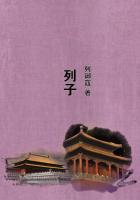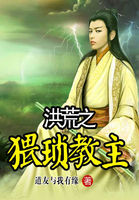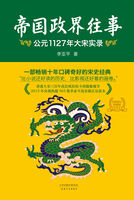CERTAINLY now was the time to study the languages.The Peterkins had moved into a new house, far more convenient than their old one, where they would have a place for everything and everything in its place.Of course they would then have more time.
Elizabeth Eliza recalled the troubles of the old house, how for a long time she was obliged to sit outside of the window upon the piazza, when she wanted to play on her piano.
Mrs.Peterkin reminded them of the difficulty about the table-cloths.The upper table-cloth was kept in a trunk that had to stand in front of the door to the closet under the stairs.But the under table-cloth was kept in a drawer in the closet.So, whenever the cloths were changed, the trunk had to be pushed away under some projecting shelves to make room for opening the closet-door (as the under table-cloth must be taken out first), then the trunk was pushed back to make room for it to be opened for the upper table-cloth, and, after all, it was necessary to push the trunk away again to open the closet-door for the knife-tray.This always consumed a great deal of time.
Now that the china-closet was large enough, everything could find a place in it.
Agamemnon especially enjoyed the new library.In the old house there was no separate room for books.The dictionaries were kept upstairs, which was very inconvenient, and the volumes of the Encyclop?dia could not be together.There was not room for all in one place.So from A to P were to be found downstairs, and from Q to Z were scattered in different rooms upstairs.And the worst of it was, you could never remember whether from A to P included P."I always went upstairs after P," said Agamemnon, "and then always found it downstairs, or else it was the other way."Of course now there were more conveniences for study.With the books all in one room, there would be no time wasted in looking for them.
Mr.Peterkin suggested they should each take a separate language.
If they went abroad, this would prove a great convenience.
Elizabeth Eliza could talk French with the Parisians; Agamemnon, German with the Germans; Solomon John, Italian with the Italians; Mrs.Peterkin, Spanish in Spain; and perhaps he could himself master all the Eastern Languages and Russian.
Mrs.Peterkin was uncertain about undertaking the Spanish, but all the family felt very sure they should not go to Spain (as Elizabeth Eliza dreaded the Inquisition), and Mrs.Peterkin felt more willing.
Still she had quite an objection to going abroad.She had always said she would not go till a bridge was made across the Atlantic, and she was sure it did not look like it now.
Agamemnon said there was no knowing.There was something new every day, and a bridge was surely not harder to invent than a telephone, for they had bridges in the very earliest days.
Then came up the question of the teachers.Probably these could be found in Boston.If they could all come the same day, three could be brought out in the carryall.Agamemnon could go in for them, and could learn a little on the way out and in.
Mr.Peterkin made some inquiries about the Oriental languages.
He was told that Sanscrit was at the root of all.So he proposed they should all begin with Sanscrit.They would thus require but one teacher, and could branch out into the other languages afterward.
But the family preferred learning the separate languages.Elizabeth Eliza already knew something of the French.She had tried to talk it, without much success, at the Centennial Exhibition, at one of the side-stands.But she found she had been talking with a Moorish gentleman who did not understand French.Mr.
Peterkin feared they might need more libraries, if all the teachers came at the same hour; but Agamemnon reminded him that they would be using different dictionaries.And Mr.Peterkin thought something might be learned by having them all at once.Each one might pick up something beside the language he was studying, and it was a great thing to learn to talk a foreign language while others were talking about you.Mrs.Peterkin was afraid it would be like the Tower of Babel, and hoped it was all right.
Agamemnon brought forward another difficulty.Of course they ought to have foreign teachers, who spoke only their native languages.But, in this case, how could they engage them to come, or explain to them about the carryall, or arrange the proposed hours? He did not understand how anybody ever began with a foreigner, because he could not even tell him what he wanted.
Elizabeth Eliza thought a great deal might be done by signs and pantomime.
Solomon John and the little boys began to show how it might be done.Elizabeth Eliza explained how "langues " meant both "languages" and "tongues," and they could point to their tongues.
For practice, the little boys represented the foreign teachers talking in their different languages, and Agamemnon and Solomon John went to invite them to come out, and teach the family by a series of signs.
Mr.Peterkin thought their success was admirable, and that they might almost go abroad without any study of the languages, and trust to explaining themselves by signs.Still, as the bridge was not yet made, it might be as well to wait and cultivate the languages.
Mrs.Peterkin was afraid the foreign teachers might imagine they were invited out to lunch.Solomon John had constantly pointed to his mouth as he opened it and shut it, putting out his tongue; and it looked a great deal more as if he were inviting them to eat, than asking them to teach.Agamemnon suggested that they might carry the separate dictionaries when they went to see the teachers, and that would show that they meant lessons, and not lunch.
Mrs.Peterkin was not sure but she ought to prepare a lunch for them, if they had come all that way; but she certainly did not know what they were accustomed to eat.















